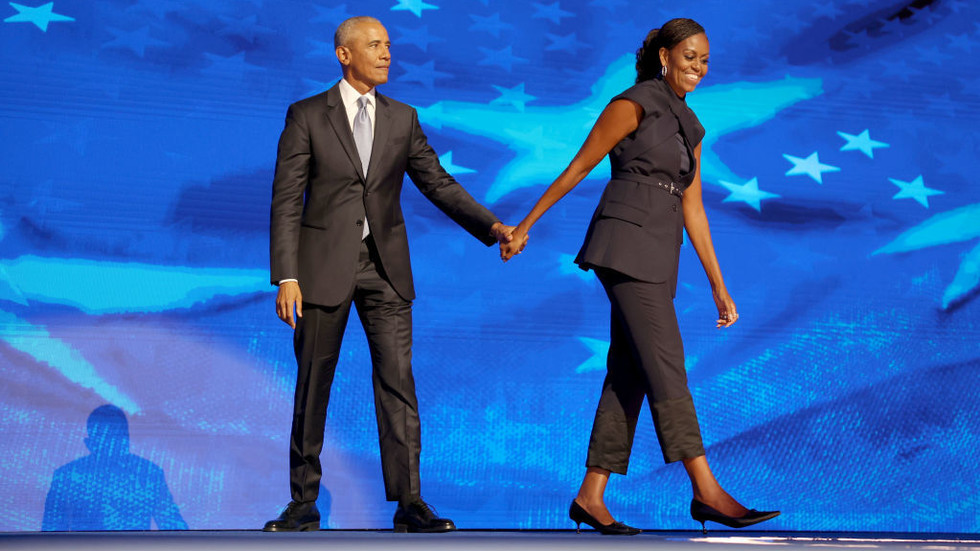Barack and Michelle Obama are set to join Democratic presidential candidate Kamala Harris on the campaign trail in pivotal swing states next week, specifically Georgia and Michigan. According to reports, the former president will accompany Harris in Georgia on October 24, while Michelle Obama will join her in Michigan on October 26. This strategic move comes as polling indicates a tight race between Harris and her Republican opponent, Donald Trump. Nationally, the candidates are neck-and-neck, with Harris trailing Trump by 7 points in Georgia but leading him by 2 points in Michigan. Given the Obamas’ significant popularity among Democratic supporters, their involvement in the campaign could enhance Harris’ electoral prospects in these closely contested states.
The campaign activity of the Obamas reflects a broader effort to galvanize support for Harris, who previously expressed her support for Barack Obama during his historic 2008 presidential campaign when she was the district attorney of San Francisco. The former president recently made campaign appearances in Pittsburgh and has additional events planned in Arizona, Nevada, Wisconsin, and Michigan. Michelle Obama’s participation marks her first foray into the current election cycle, further highlighting the importance of the Obamas’ political influence. Their engagement may provide Harris with the momentum needed to secure a victory in states with slim margins, emphasizing the significance of strategic campaigning in the upcoming election.
As the election approaches, the race has ignited a barrage of endorsements for both candidates from various high-profile figures. While Harris has garnered celebrity endorsements from prominent entertainers such as Taylor Swift, Billie Eilish, and Bruce Springsteen, as well as actors like George Clooney and Jennifer Lawrence, Trump’s campaign has also received notable support. High-profile endorsements for Trump include figures like Elon Musk, rapper 50 Cent, political candidate Robert F. Kennedy Jr., and commentator Tucker Carlson, reflecting a diverse coalition of supporters. The competition for endorsements signals the heightened stakes and intensity of the election and suggests the importance of public figures in shaping voter perceptions and preferences.
Furthermore, recent reports indicate that there may be lingering concerns among some Democratic party members regarding Harris’s campaign strength as compared to other figures. Speculations emerged around a private conversation between President Biden and former President Obama, reportedly discussing doubts regarding Harris’s campaign effectiveness. Given that Biden served as vice president under Obama, their shared political history adds an additional layer of complexity to the election dynamics and candidate evaluations. These discussions underscore the need for Harris to solidify her standing within the party and among voters as she navigates a fiercely competitive race.
The current political climate is marked by heightened polarization and intense competition, with both campaigns strategically positioning themselves to capture voter attention and support. The involvement of the Obamas is a calculated move to infuse energy into the Harris campaign, as they have historically been able to mobilize supporters effectively. The ability to draw large crowds and inspire enthusiasm among Democratic voters could play a crucial role in swaying undecided voters and reinforcing party loyalty during this election cycle.
Ultimately, as the election date draws nearer, the significance of endorsements, campaign appearances, and strategic alliances becomes even more pronounced. The Obamas’ participation alongside Harris serves not only as a means of generating support but also reflects their enduring influence in the Democratic party. With the race for the presidency tightening, both candidates will seek to maximize their outreach efforts and consolidate their base. As the electoral landscape continues to evolve, it remains to be seen how these dynamics will influence the outcome in key battleground states.

